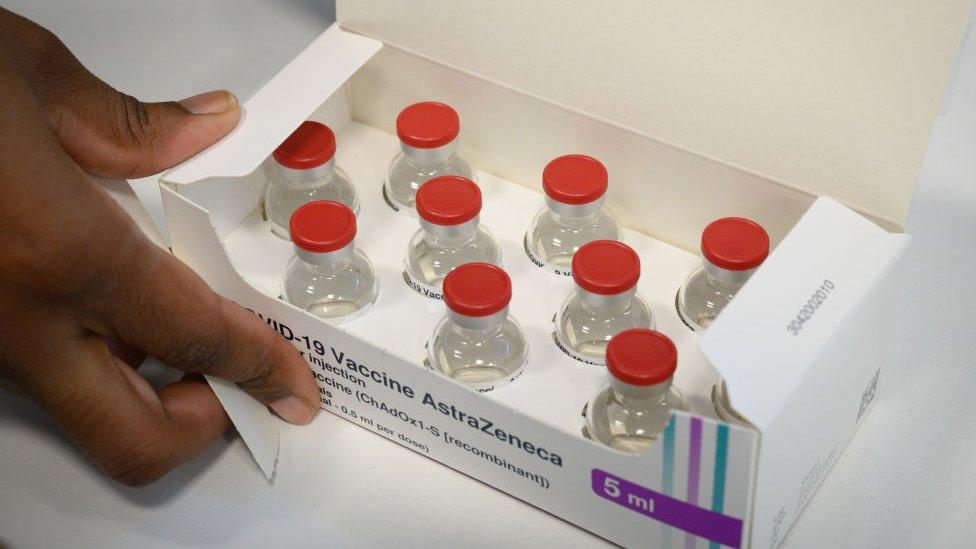Covid vaccine 'delivered with increasing urgency' in Wales
- Published
- comments

Vaughan Gething insisted the vaccine was not being withheld in Wales
Wales' health minister has insisted there is an "increasing urgency and an increasing pace of delivery" of vaccinations in the country.
Vaughan Gething told BBC 5 live the first minister had "clarified" remarks made on Monday that there was no point rushing to use all available vaccines.
Former Welsh Secretary Stephen Crabb had said Mark Drakeford's comments were "astonishing".
Mr Gething said on Tuesday the vaccine was not being withheld.
He said the challenge was "having enough infrastructure to deliver the Pfizer jab without wasting it".
"Less than 1% of that vaccine is not being delivered, that's a very, very high level of efficiency," Mr Gething said.
"So we're able to roll out the vaccine in a way that we can deliver more and more of it. This week, we'll deliver even more of our Pfizer vaccine than last week."
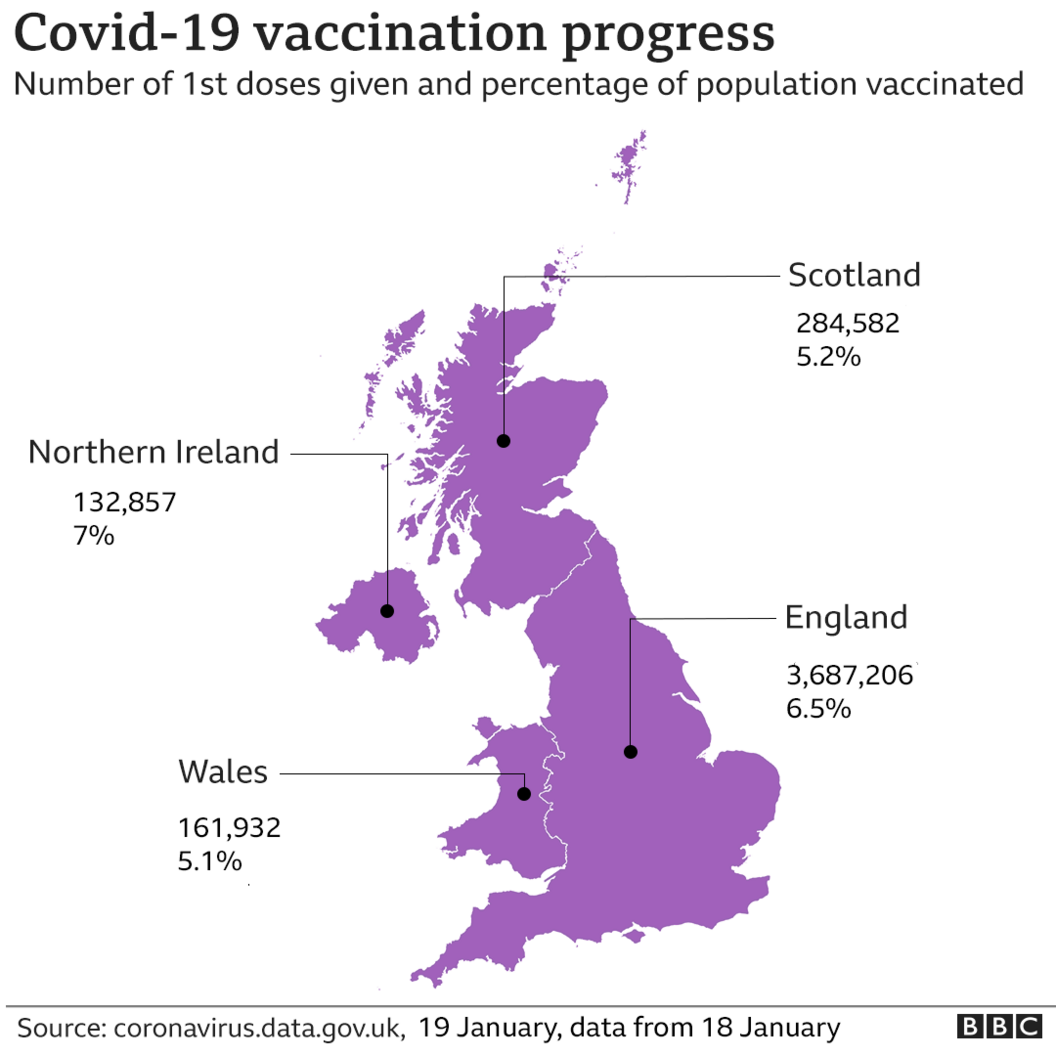
He told BBC Radio Wales "big progress" was being made in delivering the vaccine and the NHS "won't let people down".
On Tuesday, Public Health Wales said 161,932 people had received their first vaccine, up 10,195 from the previous day's figures.
This is around 5.1% of the Welsh population, roughly the same rate for first doses as the vaccinations in Scotland.
Both are still behind England (6.5%) and Northern Ireland (7%)
Mr Gething said he could understand why "an unsettling effect" may have resulted from the way Mr Drakeford's interview "was presented".
"We are going as fast as possible," he said.

Concern over batch of swabs used for Covid tests
Some swabs used in sampling for Covid-19 have been taken out of circulation after concerns they may have led to false positive test results.
NHS Wales Shared Services Partnership is investigating its supply chain to establish how many of the swabs have been distributed and how many are still in stores, the Welsh Government said.
In a statement issued on Tuesday evening, Mr Gething said the swabs were used to sample for Covid-19 in hospital settings, at health board-run community testing units and some mobile testing units.
"As soon as this problem was discovered, all microbiology labs and testing centres in Wales were notified so that the affected swabs could be taken out of circulation," he said.
Mr Gething said the issue was identified on Friday by Public Health Wales (PHW) laboratory staff.
"The issue detected may have affected the accuracy of a small proportion of test results leading to false positives," he said.
"However, based on what we currently know, Public Health Wales is confident that this does not affect the overall epidemiological picture."
He said NHS Wales Shared Services Partnership was working with PHW, health boards, the manufacturer of the swabs COPAN and the UK supplier/distributor Thermo Fisher Scientific to "identify and isolate the swabs potentially affected to prevent their ongoing use".
He said the swabs have been isolated as a "precaution while further investigations are undertaken".

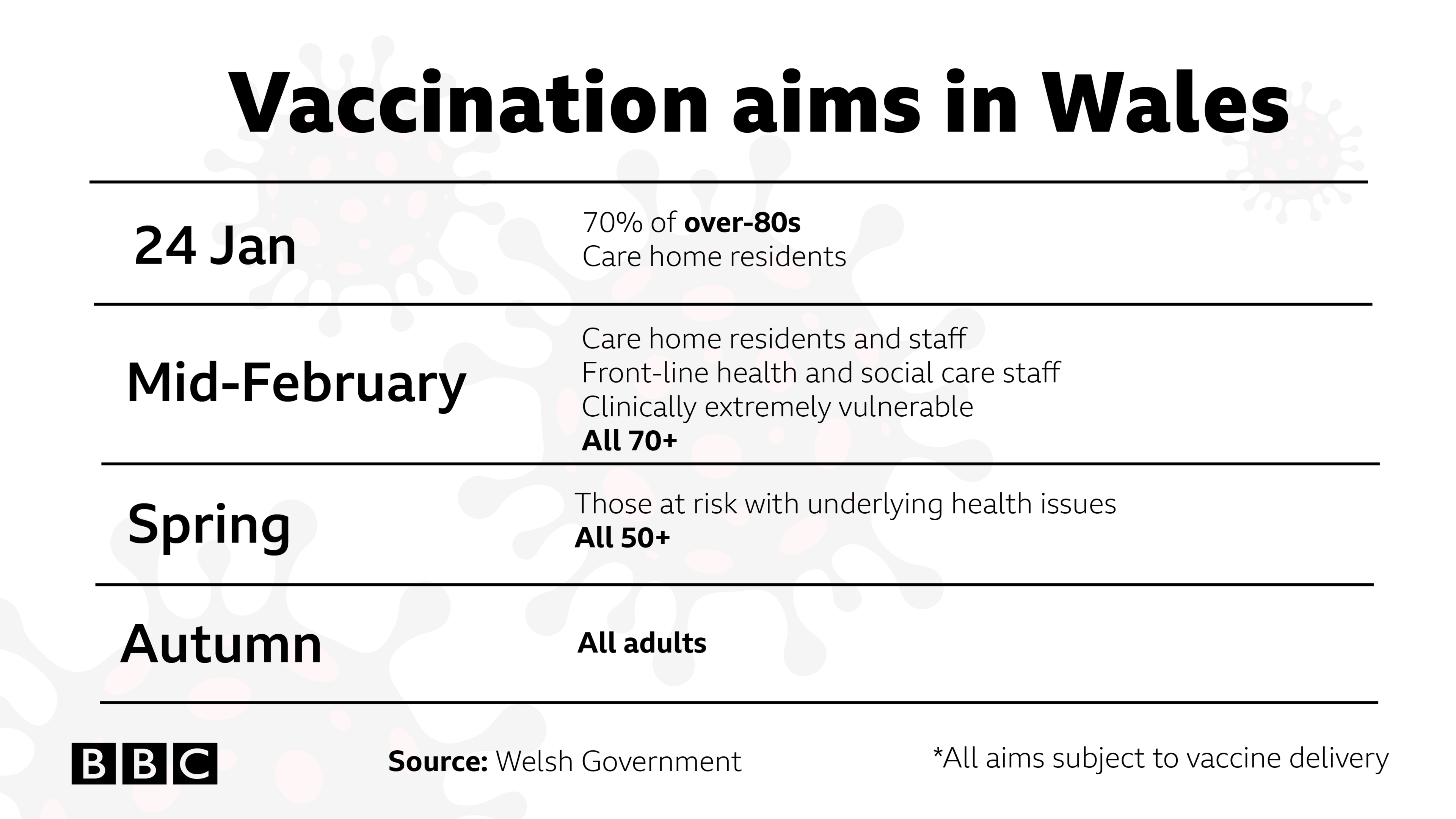
"More and more people are being protected - we are at the point where by the end of this week seven in 10 care home residents and staff should be protected, seven in 10 over-80s in Wales should be protected with their first shot.
"We're making really big progress with protecting our staff with their first vaccine. We're doing a really good job at increasing the pace. This is a race against the virus and to recover as much as possible of normal life."
The NHS "won't let people down", he said.
Mr Gething told the Senedd on Tuesday afternoon that more than "60,000 Pfizer jabs have been released this week to NHS Wales to make sure they're put into people's arms".
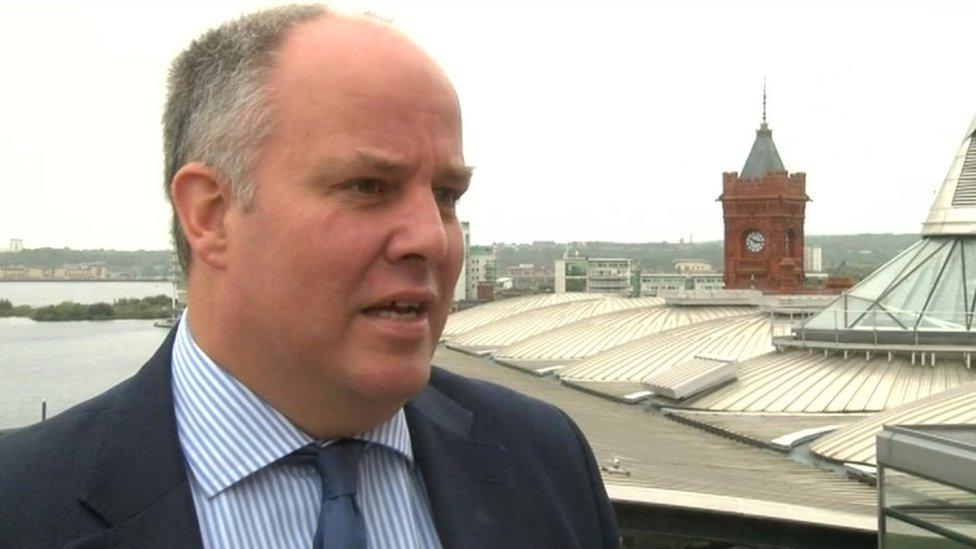
Andrew RT Davies said Mr Gething was trying to clear up the "mess" made by the first minister
Conservative health spokesman Andrew RT Davies was "sadly" not reassured by the health minister.
He said Mr Gething was trying to clear up the "mess" made by the first minister.
"In some respects the first minister didn't make a mess," he said.
"He spoke honestly about what Welsh Government policy is at the moment."
Mr Davies said he did not accept Mr Gething's defence that things were being done as quickly as they could.
With "whole swathes of the economy shut down", the vaccine was "no good in the bottle", he said.
"It surely is a sprint and it is a sprint to get this vaccine out as quickly as possible to offer people protection against the virus," Mr Davies added.
He said "we all want to see success".
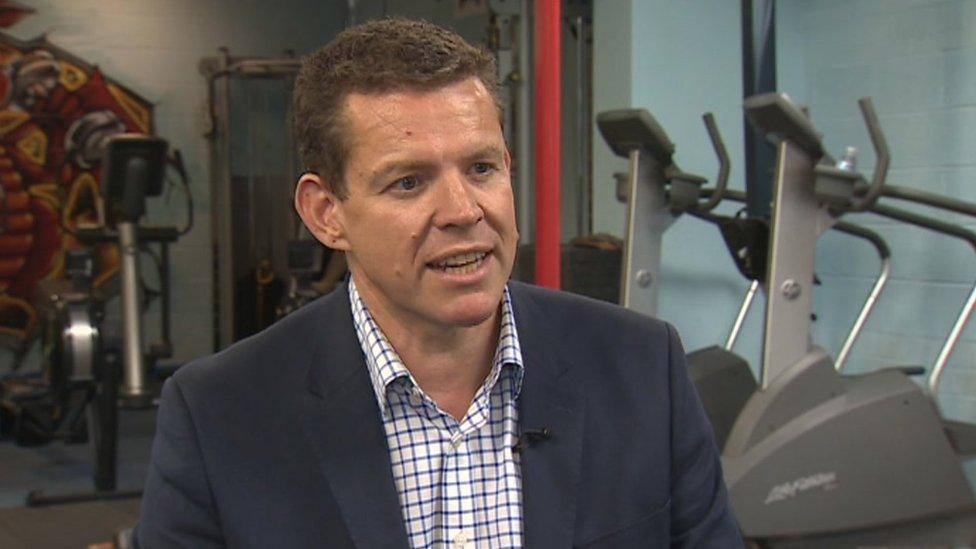
Rhun ap Iorwerth said the vaccine needed to be delivered "as quickly as possible"
Plaid Cymru health spokesman Rhun ap Iorwerth said confidence in the system was "very important".
"We have this very confusing couple of days where the first minister says categorically they are holding the vaccine back and then, in a few hours, no, we are not holding the vaccine back.
"That kind of lack of clarity breeds confusion."
Vaccine needed to be delivered "as quickly as possible," he added.


Given the criticism that the vaccination effort in Wales has been slow off the blocks, it would be a disaster if the Welsh Government ended up missing its official milestone of vaccinating the top four priority groups - including the over 70s - by about Valentine's Day in mid-February.
But if the effort continues at the speed it is now, that target won't be reached until mid-March.
We have estimated that to reach that target, way more than 20,000 first doses need to be given a day - almost double the current rate.
It would be even more than that if the Welsh Government wants to build in some wriggle room to accommodate any potential disruption in supply.
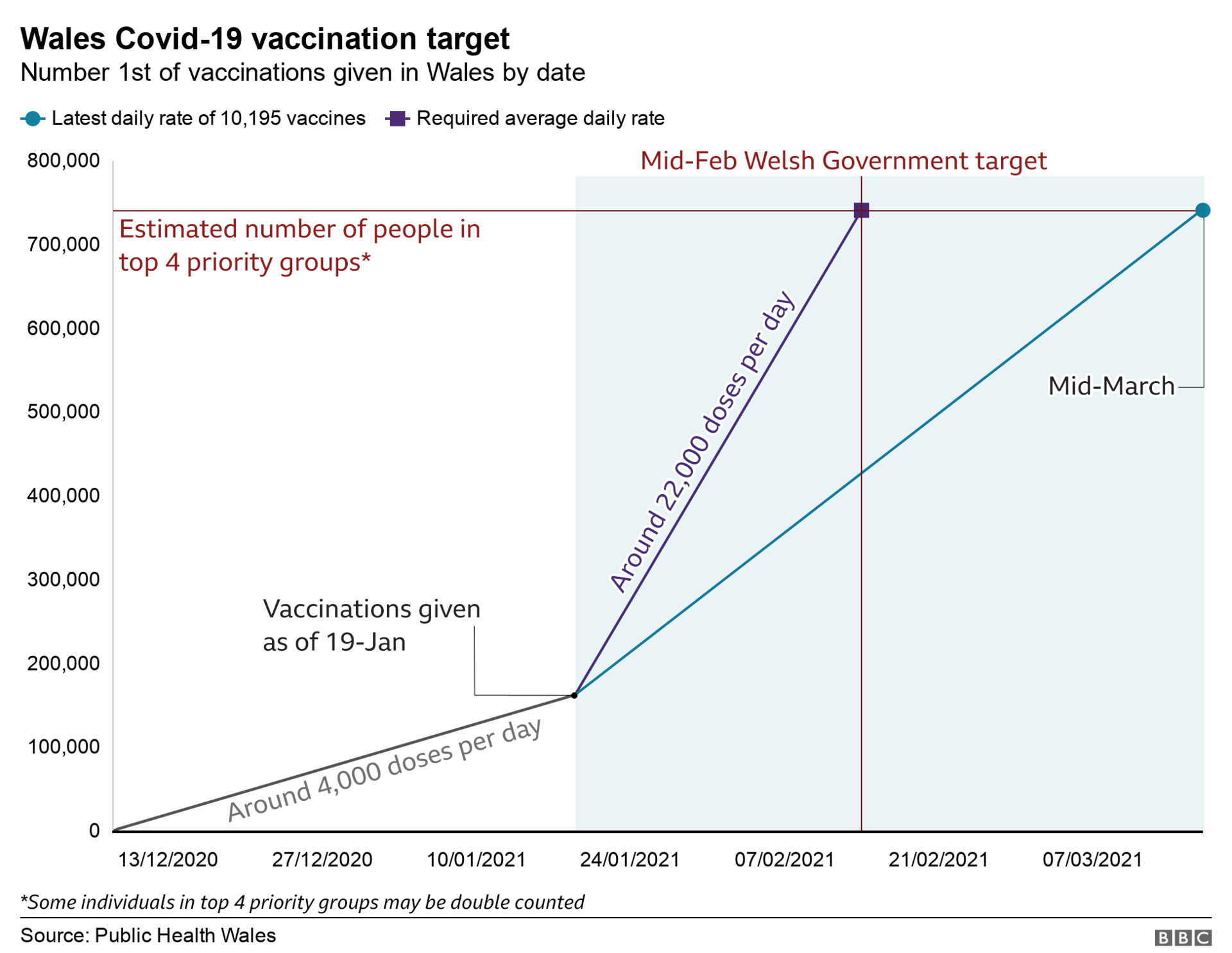
But the health minister insists Wales is on track to meet that commitment and the programme will quickly speed up.
In an effort to demonstrate what's achievable, Vaughan Gething said he was confident that 70% of over-80s and 70% of care home residents and staff will have been given their first jab by the end of the weekend.
During a period of intense scrutiny by the public and his political rivals, this is a pledge that simply has to be delivered.

Daniel Altman, a professor of immunology at Imperial College, London, said the Pfizer-BioNTech vaccine was "unique" because it had to be stored at -70C.
"These things are challenging but they're not insurmountable," he said.
"I watch what's happening in Wales with great interest to see if the numbers really can be caught up. That's the way to beat this and get transmission down."
'Causing anxiety'
Bronwen Rashad, of the Wye Valley, Monmouthshire, said her 78 and 81-year-old parents had not yet received vaccine appointments.
"The Welsh Government have done brilliantly with everything else, I don't why with the vaccine it has gone wrong," she said.
She said the situation was causing "a lot of anxiety."
"My dad is really quite stressed about it," she said.
"Friends who have parents of a similar age in England have got their vaccine."
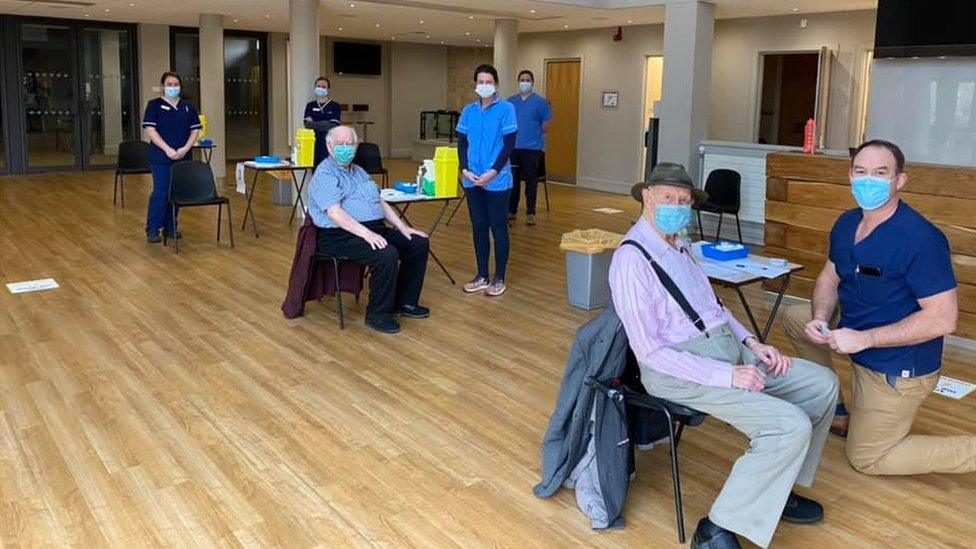
Vaccination clinics are being run at Cardiff's All Nations Church

ESCAPE WITH HAYLEY PEARCE: Topics that make the group chat go off
ELIS JAMES CHEWS OVER THE WEEK'S FOOTBALL: Elis, Danny and Iwan discuss Stoke's seven Welsh players

GP 'hoping' vaccine supply will increase
Dr Rebecca Towner, a GP at Whitchurch Road Surgery in Cardiff, said staff were "really excited to be able to deliver" the vaccine, with the first clinic held last Friday at the nearby All Nations Church.
"We managed to do the over 90s, which went really well," she said.
"We have only got a limited number of vaccines initially. We are hoping the supply will increase."
She said some patients were "really anxious to get their vaccine as soon as possible".
Vaccination rate 'increasing'
"We are having to be fair across the whole of Cardiff. There are 10 huge practices over the north of Cardiff that are part of the cluster we are in.
"We are trying to make sure there isn't any sort of postcode lottery, and that no demographic group is being disadvantaged in any way."
Dr Keith Reid, executive director of public health at Swansea Bay University Health Board, said the rate of vaccinations was increasing in the area.
"The rate-limiting step at the moment is the flow of vaccine," he said.
"We are working with pharmaceutical colleagues in Welsh Government to understand how vaccine will be coming down the line towards us so that we can prioritise our clinics against that, and make sure we have people coming in when we have vaccine."

LOOK-UP TOOL: How many cases in your area?
GLOBAL SPREAD: How many worldwide cases are there?
THE R NUMBER: What it means and why it matters

- Published18 January 2021
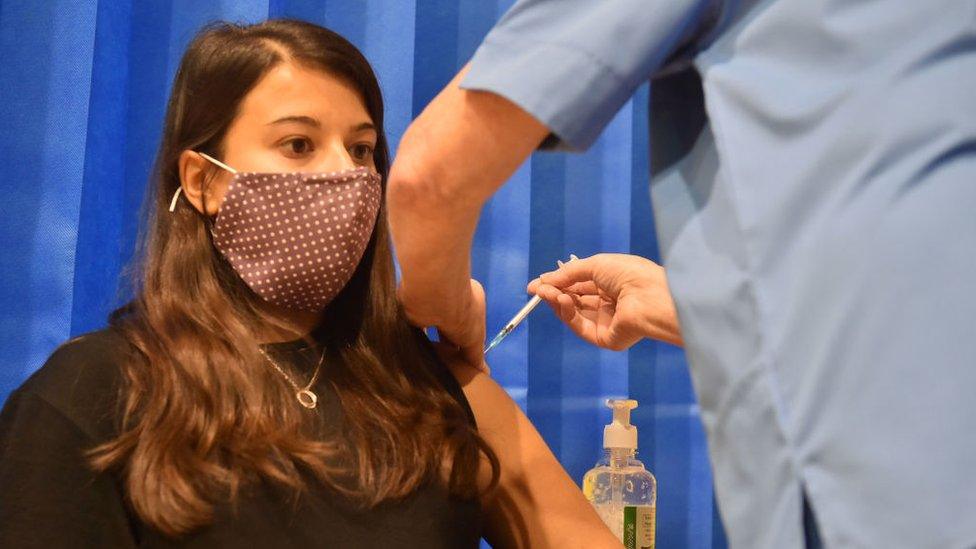
- Published10 February 2021
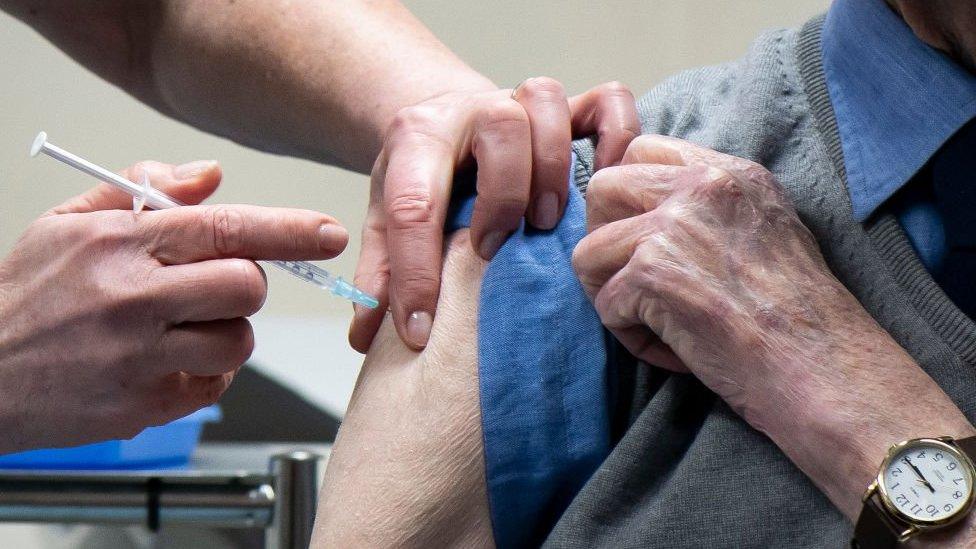
- Published16 January 2021
